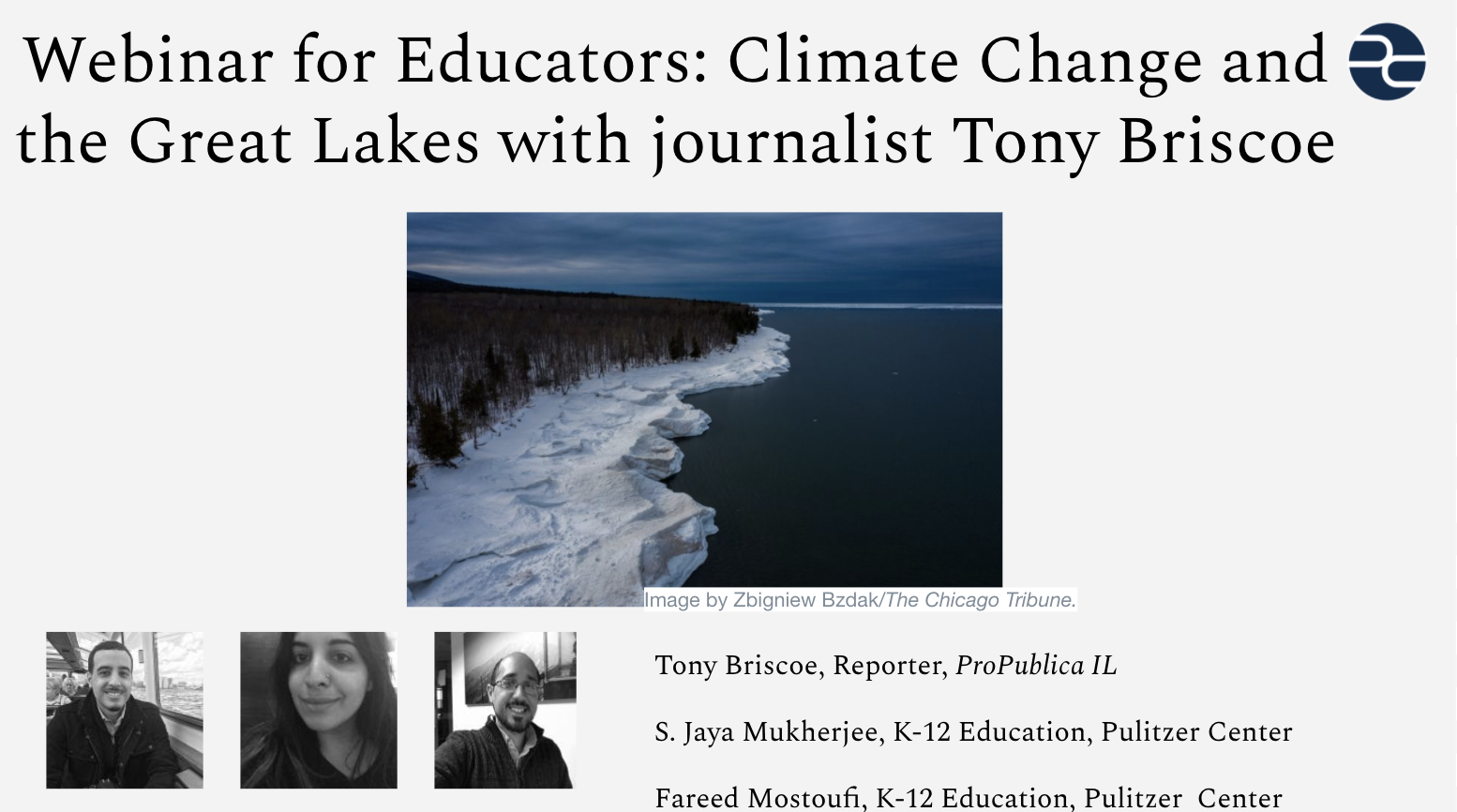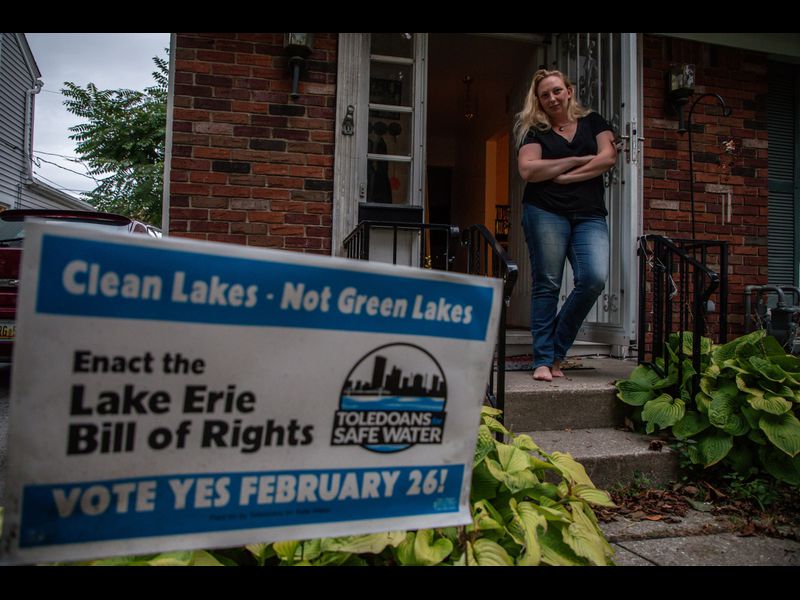
On September 16, 2020, students and educators gathered online to hear journalist Tony Briscoe discuss the profound impact of climate change on the Great Lakes region and share his reporting for the project, "Climate Change: Great Lakes, High Stakes." Briscoe was joined by Pulitzer Center's Chicago-based education coordinator, Jaya Mukherjee, and associate director of education, Fareed Mostoufi. In addition to learning about Briscoe's reporting process and the effects of climate change on communities living in the Great Lakes region, attendees examined instructional materials and activities designed to help students explore these issues and take action to advocate for the environment.
Mukherjee began the webinar by describing the Pulitzer Center's process for identifying under-reported stories and how this ties in with the mission of the education team. She then highlighted resources and opportunities available to educators and students, such as a lesson for middle and high school students derived from Briscoe's reporting in the Great Lakes region. The Pulitzer Center has over 150 lessons that explore the global impact of climate change.
At the start of his presentation, Briscoe emphasized why the nation should care about the Great Lakes region and discussed how his reporting on the issue came to fruition through the Pulitzer Center's 'Connected Coastlines' grant. He explained that the Great Lakes region is home to 20 percent of the planet's surface freshwater, a $7 billion fishing industry, and a multibillion-dollar shipping industry. Briscoe then highlighted his experience reporting on each of the Great Lakes and touched on the consequences climate change is causing for each.
Throughout the Q&A portion, participants had the opportunity to ask questions through the webinar's live-chat function. One question addressed the role of gender: "In many parts of the world, there is a strong intersection of gender and water. How does this manifest itself in the Great Lakes region?" In response, Briscoe recalled his visit to Manitoulin Island, where a chief of the Wiikwemkoong tribe told Briscoe that in their culture, women are seen as the caretakers of water. Briscoe further discussed his conversations with the women in the region who are raising awareness about the importance of protecting the Great Lakes as a resource. He noted that paying attention to the voices of people working to address global issues is what inspired him to become a journalist.
Participants were able to share reflections on the discussion in a post-webinar evaluation. One participant mentioned they most enjoyed "learning about a local issue (I live near Lake Michigan)—both the science and how it affects people." Another shared that they would use the "Great Lakes, High Stakes" reporting in the classroom by having students, "...read the articles, then address the questions in the lesson plan through a group discussion."
The Pulitzer Center invites educators to view the webinar at their convenience to discover tools for connecting their students with reporting on today's crucial issues. A lesson outlining how to explore these strategies with students can be found here. Please contact [email protected] if you have any questions or would like support connecting Briscoe to your classrooms for a virtual presentation.










